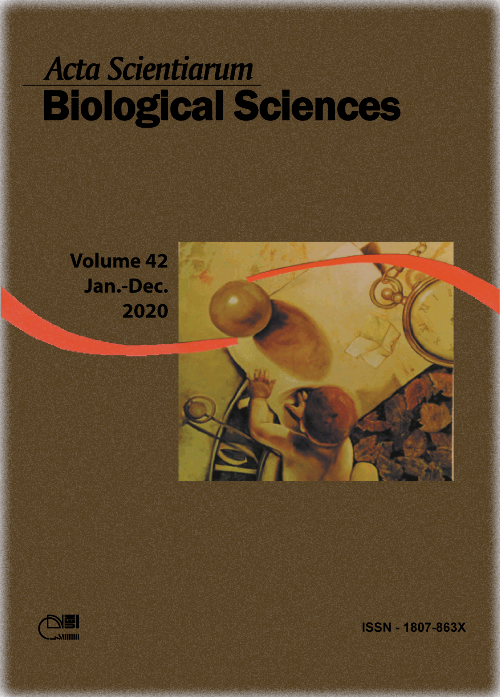First report of complete albinism in Mazama americana (Erxleben, 1777) in the Biological Reserve of Tapirapé, Oriental Amazon, Brazil
Resumo
Albinism is a genetic condition that results in total hypopigmentation of the eyes, fur, skin, hair, scales, and feathers of an organism. Albinism might result in a selective disadvantage for affected animals. Cases of albinism have been previously recorded in Neotropical vertebrates, such as reptiles, mammals, birds, and fish. However, observing albinism in a wild population is still considered to be a rare event. This paper reports a unique case of complete albinism in a red-brocket deer (Mazama americana) living in the Brazilian Amazon rainforest. The individual was observed within the Biological Reserve of Pará State, one of the most deforested regions of the Brazilian Amazon. The survival of the albino red-brocket deer in the wild can be related to mechanisms of apostatic selection, which theorize the survival of individual prey animals whose mutations make them less likely to be attacked by predators. In other words, the more different a prey animal is from others, the less likely it will be targeted by predators. The high abundance prey animals within the Biological Reserve of Tapirapé seems to support this prediction. This report exemplifies the importance of monitoring the biodiversity and promoting the conservation of favorable habitats to support species multiplicity in highly fragmented regions, as in the Brazilian Amazon.
Downloads
DECLARAÇÃO DE ORIGINALIDADE E DIREITOS AUTORAIS
Declaro que o presente artigo é original, não tendo sido submetido à publicação em qualquer outro periódico nacional ou internacional, quer seja em parte ou em sua totalidade.
Os direitos autorais pertencem exclusivamente aos autores. Os direitos de licenciamento utilizados pelo periódico é a licença Creative Commons Attribution 4.0 (CC BY 4.0): são permitidos o compartilhamento (cópia e distribuição do material em qualqer meio ou formato) e adaptação (remix, transformação e criação de material a partir do conteúdo assim licenciado para quaisquer fins, inclusive comerciais.
Recomenda-se a leitura desse link para maiores informações sobre o tema: fornecimento de créditos e referências de forma correta, entre outros detalhes cruciais para uso adequado do material licenciado.













1.png)




3.png)













